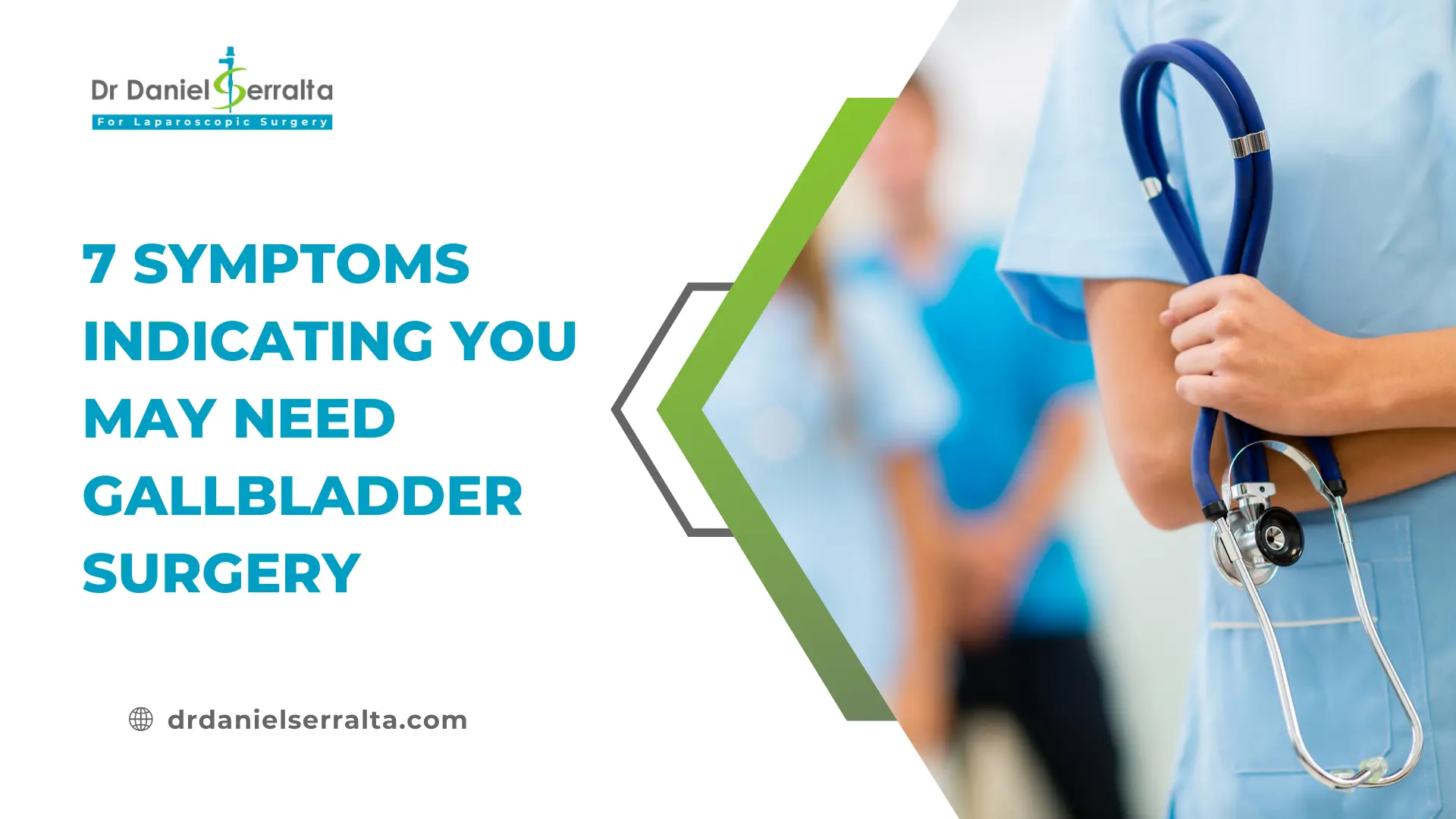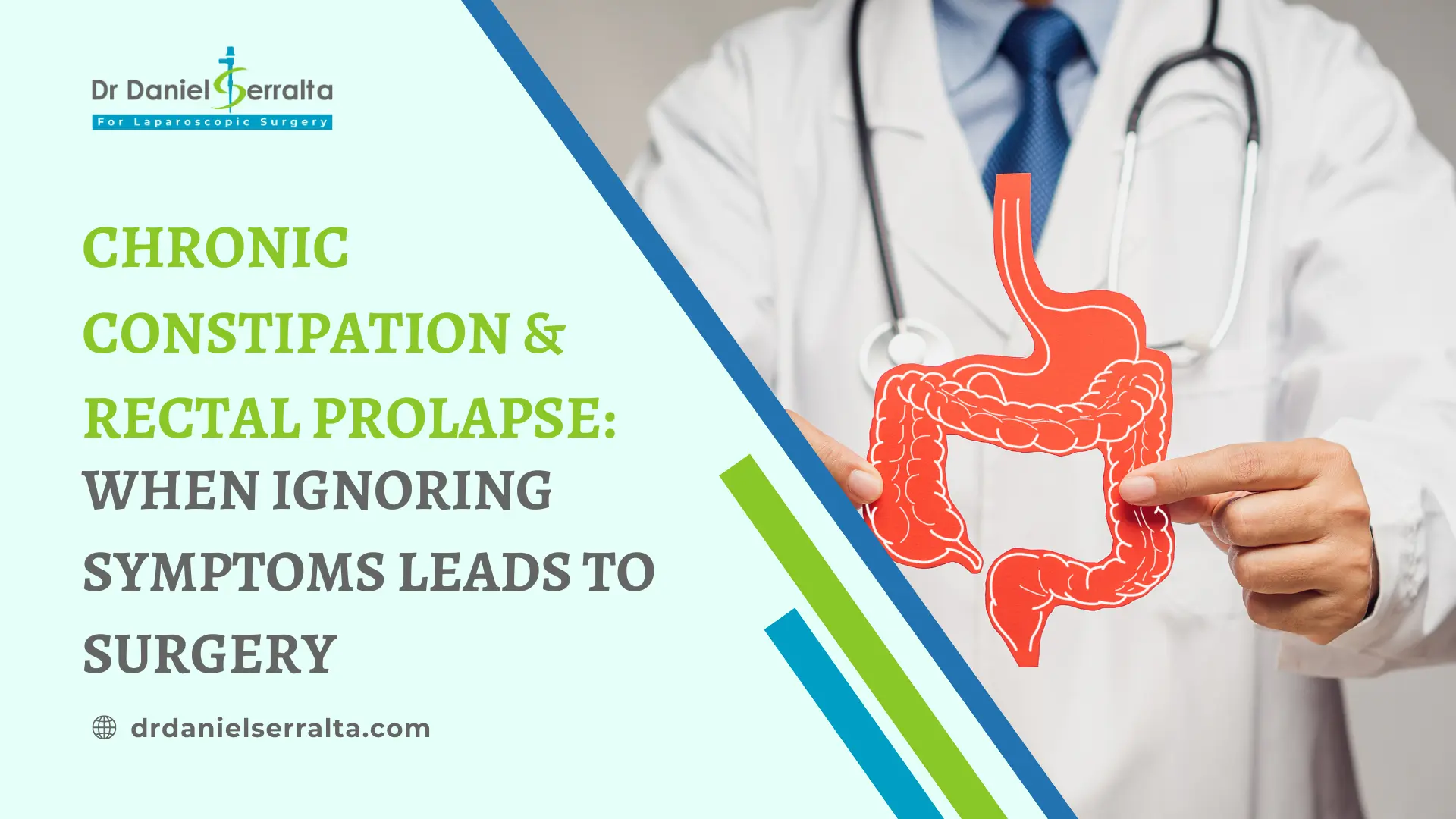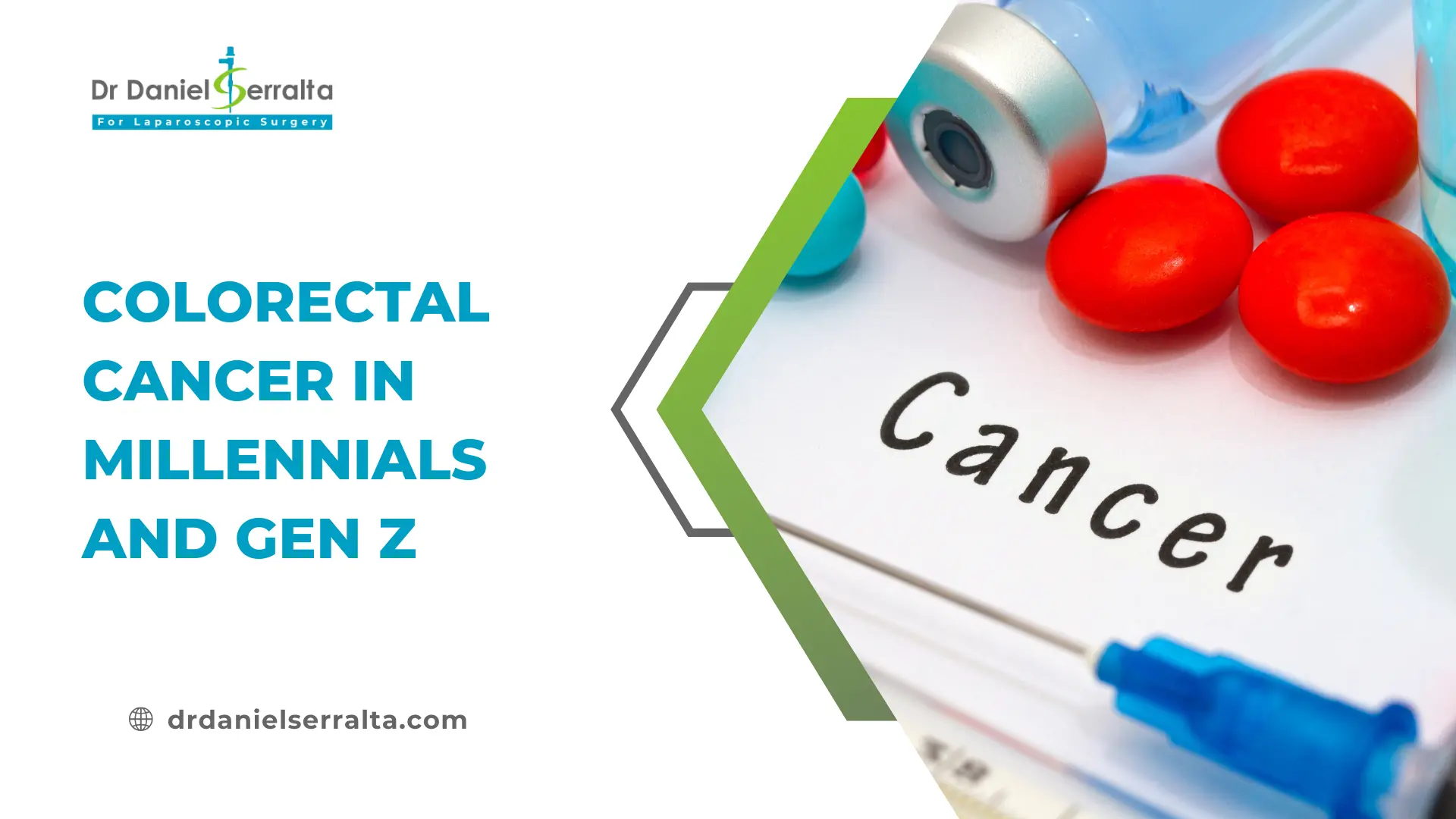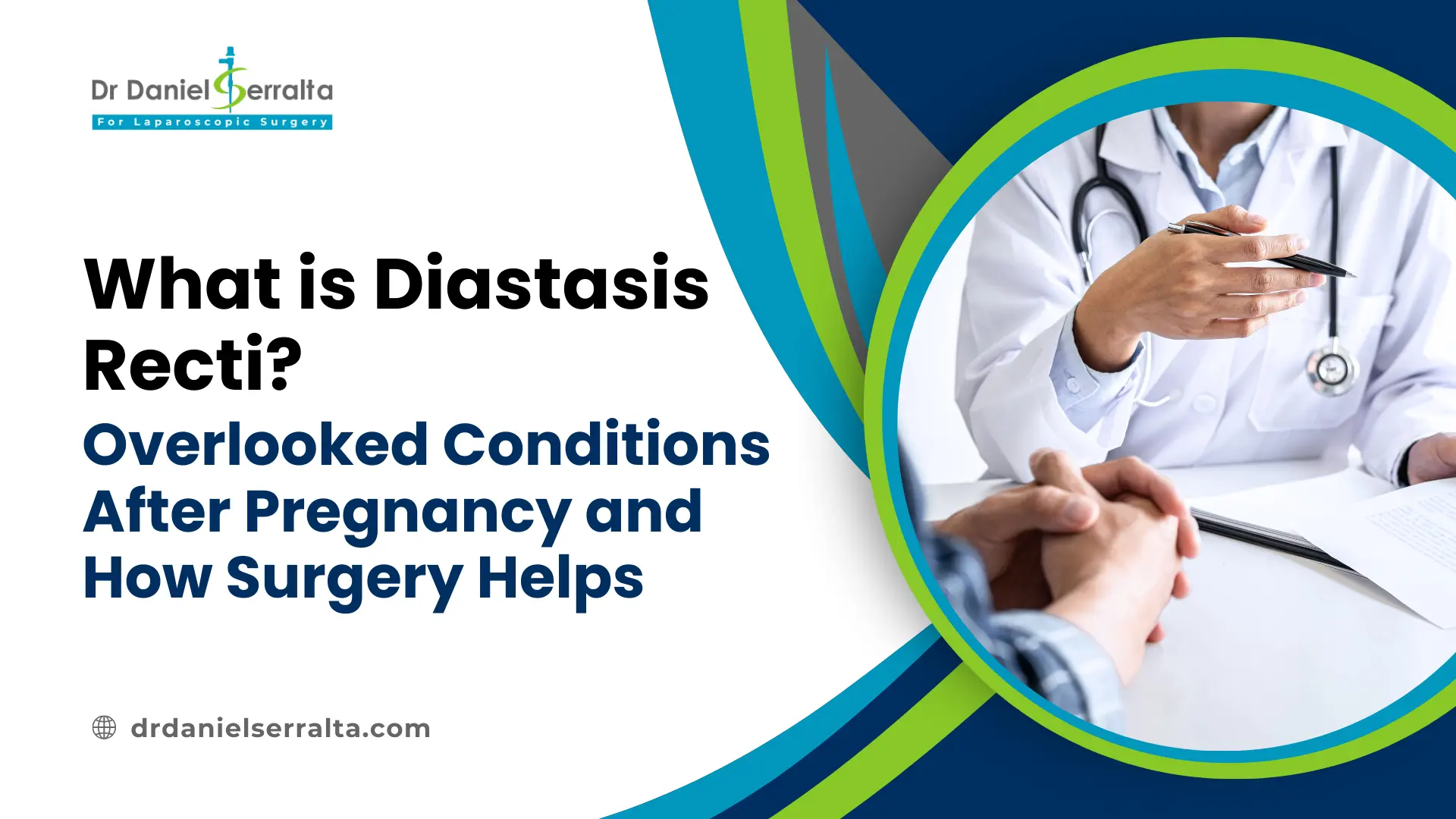7 Symptoms Indicating You May Need Gallbladder Surgery

Many of the patients I see in my clinic as a surgeon, complain of abdominal pain and digestive disturbances. More often than not, their symptoms point to the gallbladder. The gallbladder is a small organ in the human body known for storing bile and thus eases the process of fat digestion. Life can become a challenge when it is affected by gallstones or inflammation. Timely intervention can spare bigger problems later on, which is why understanding the signs of gallbladder surgery is crucial.
This blog will focus on the symptoms of Gallbladder Surgery that I previously mentioned and will also explain to you the appropriate time to seek medical attention.
7 Symptoms of Gallbladder Surgery
1. Consistent Discomfort in the Upper Right Side of the Abdomen
A persistent ache or sharp discomfort in the upper right side of the abdomen is the primary symptom that my patients report. Occasionally, you can feel pain right below the ribs and it then affects the right shoulder or the back as well. In my experience, one of the dangerous symptoms that gallbladder issues usually show is regular episodes of this pain, which indicate that the gallbladder is either inflamed or struggling to deliver the stored bile into the digestive tract. Such repetitive pain episodes are possibly the signs your gallbladder needs to be removed.
2. Indigestion and Bloating
Bloating and indigestion after completing a meal are other symptoms to note. Ineffective bile secretion from the gallbladder leads to inefficient fat digestion. These digestive problems escalate with time. I personally discourage overlooking these persistent digestive concerns that can be classified as symptoms of Gallbladder Surgery. Therefore in such cases I highly suggest gallbladder surgery with proper precautions, as delay in treatment can increase further complications.
3. Frequently feeling Nauseous and Throwing up
Patients frequently report feeling nauseous after eating, particularly after consuming fatty foods. Sustained nausea or vomiting could be a sign of a malfunctioning gallbladder. These are not trivial digestive difficulties; rather, they are significant signs of gallbladder troubles that need to be treated by a doctor. These problems may be one of the first indications that you require gallbladder surgery if they start to interfere with your day-to-day activities.
4. Abrupt Gallbladder Pain Attacks
Many patients report experiencing “attacks” of sudden, severe gallbladder pain symptoms. They are called gallbladder colics. These might last anywhere from a few minutes to several hours and typically occur after a large meal. One of the most noticeable signs of acute gallbladder discomfort is these excruciating episodes. Such assaults are a glaring warning sign you need Gallbladder Surgery.
5. Fever with Chills
A severe fever and chills can indicate an infection of the gallbladder, known as cholecystitis. This condition can be quite severe and often requires immediate attention, meaning probably Emergent Surgery in the coming hours or days. If jaundice is added to the previous symptoms you can be facing a much more complex situation called Cholangitis, in which the infection is not in the gallbladder, but in the common bile duct (CBD), the tube that connects directly the digestive tract with the liver and the gallbladder. Because of this connection with the liver this condition is potentially severe and requires a different approach, sometimes including an emergent endoscopy.
6. Jaundice (Yellowing of Skin and Eyes)
The yellowing of skin or eyes occurs when gallstones block the bile duct and bile accumulates in the body, also known as Jaundice. This is more than a casual issue; jaundice poses significant health concerns. Observing jaundice is a strong symptom that should be thoroughly studied. If the cause is some stones blocking the passage at the CBD, I always prefer to solve the obstruction before removing the gallbladder, but the removal of the gallbladder at some point (as soon as possible) is a must!!.
7. Unexplained Digestive Discomfort That Persists
At times, patients may just feel generally unwell in addition to having some ongoing abdominal discomfort, which may not be acute in nature, but is still frustrating. They may have low energy, a poor appetite, and some form of abdominal discomfort. When other possible explanations are exhausted, these complaints are likely to be in some form a disguised manifestation of gallbladder troubles. Surgical measures in these scenarios tend to work quite well.
When Should You See a Doctor?
Not all gallbladder problems require surgery right away. At other times, changing your lifestyle or medications will help. For instance, I frequently recommend modifying diets as part of symptom management.
Most of the time, I recommend my patients return to me right away if they see:
- Persistent nausea, vomiting, or bloating post-meals
- Skin or eye yellowing (jaundice)
- Severe right upper quadrant, or gallbladder pain that doesn’t go away.
- Sudden episodic pain that is sharp, lasts for hours, and does not ease with rest
- Fever or chills coupled with abdominal discomfort
- Chronic digestive issues that interfere with daily activities
If you need more information on naturally Gallbladder Removal in Dubai you can contact schedule an appointment in the 8002211 or sending me a whatsapp (+971.56.805.4323)
Conclusion
As a physician, my advice is simple: never brush off chronic stomach pain or gastrointestinal distress. Early recognition of gallbladder surgery warning signs avoids emergencies and ensures your health. If you recognize yourself in the warning signs I have described, consult immediately. Early treatment makes healing easier and avoids subsequent complications.
Commonly Asked Questions
1. What are the initial symptoms of gallbladder issues?
The initial signs typically are pain, bloating, and indigestion.
2. How do I know if I require gallbladder surgery?
If you experience recurring pain in your abdomen, nausea, or jaundice, and there is evidence of gallstones, gallbladder sludge or polyps, these are definite indications you require gallbladder surgery.
3. Are intense gallbladder pain symptoms always caused by gallstones?
By far, yes, but pain can also be due to inflammation or infection of the gallbladder.
4. Can gallbladder symptoms resolve on their own?
Minor ones might get better with a change in diet, but repeated pain generally requires surgery.
5. What will happen if I don’t get symptoms of gallbladder issues treated?
Ignoring them can result in severe infection, obstructed bile ducts, or urgent surgery.
6. What are the consequences of postponing removal of the gallbladder?
Postponement might result in aggravation of pain, infection and the need for an emergent surgery which always entails higher risks.
7. What are usual symptoms following removal of the gallbladder?
Some patients experience mild changes in the digestive system like diarrheas, but these tend to resolve in weeks.
8. What is the recovery time after gallbladder surgery?
The majority of patients recover from normal activity in one to two weeks.







